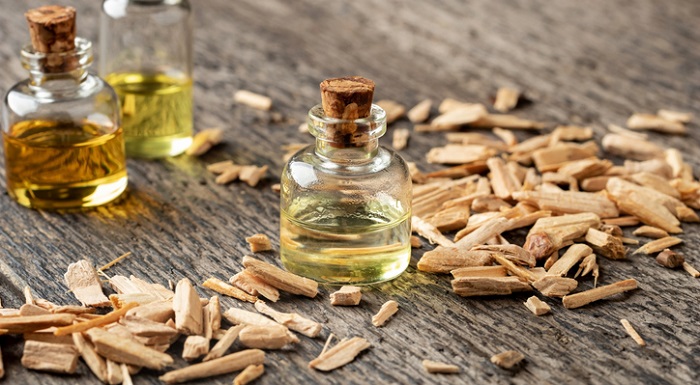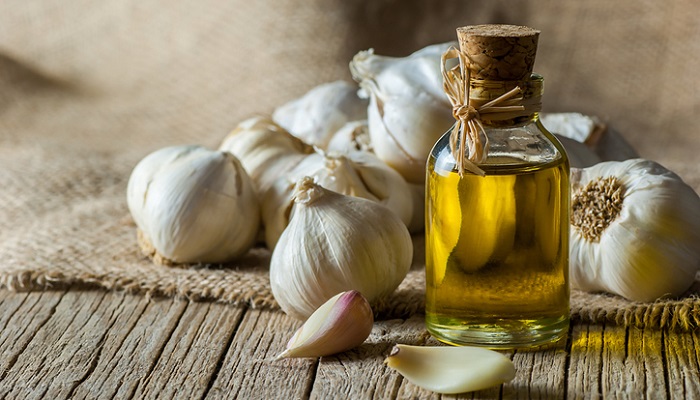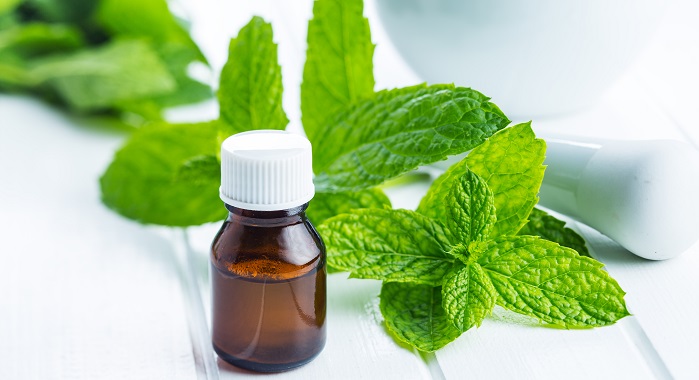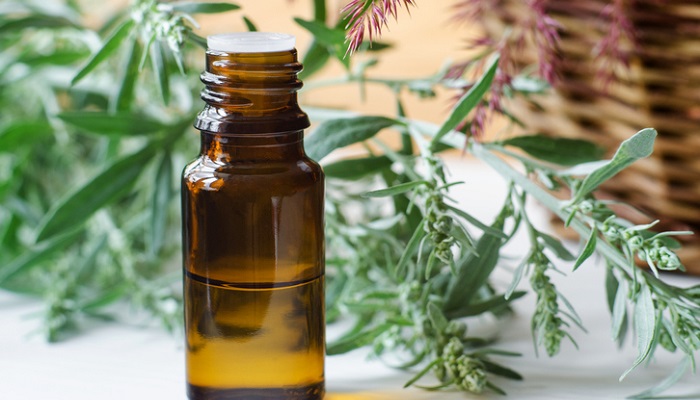Nothing is a bigger downer than dealing with mosquitos during summer outdoor events. Not only can their bites and buzzing be a distraction, but some people are more sensitive to mosquito bites than others. For these people, a fun outdoor experience can quickly be ruined by pain and itching.
While there are lots of options to repel these bugs, we’ll look at the 14 best essential oils for mosquitos in this article. After looking at the typical options, you’ll see that botanical alternatives are your best bet if you want to avoid manmade ingredients and potential harmful side effects.
Common options for repelling mosquitos
Head to the store before your hike, outdoor wedding, or picnic and you’re bound to find the usual suspects for battling mosquitos. These common options are:
- DEET products
- Picaridin products
- IR-3535
- Permethrin products (not for skin)
Unfortunately, the problem with these common ingredients is that there is a tradeoff: they keep mosquitos away, but they bring their own potential nasty side effects with them.
These can include averse central nervous system effects in some people such as confusion, dizziness, skin & eye irritation, and even seizures. Plus, there’ s even an increased cancer risk, as some of these ingredients have been shown to be carcinogenic.1
Can essential oils repel mosquitos?
The real question is are natural remedies against mosquitos an option? Are they just as good? Enter essential oils for mosquitos. These are indeed promising alternatives—especially considering that more and more mainstream mosquito repellent companies are adding them to their products, all in an effort to curb harmful chemical side effects.
On the traditional side of things, herbalists and many cultures have used plants and their oils to keep many types of insects away from food, skin, and other areas for thousands of years. It goes without saying that essential oils for mosquitos are an excellent option to have, and the science supports it, too.
The best essential oils to repel mosquitos
Which essential oils are best for keeping the mosquitos away? Here are the best 14 options for you to consider for your next outdoor adventure.
1. Cedar

In both traditional healing and some modern cultural practices around the world, both cedar herbal parts and oils (made from bark or leaves) are used to keep insects away from the body or certain outdoor areas.
Cedar is sometimes used as a smoke or incense, but diffusing the essential oil can have a similar protective effect. It can also be diluted and used topically for the same purpose. Studies do cedar one better: they show that the oil is capable of literally killing mosquitos (in larval form).2
2. Cinnamon
Besides gracing toast or a pumpkin spice latte, cinnamon’s warm, toasty aroma can have a powerful effect for keeping mosquitos away. This includes using it directly on skin, or when used as a fragrance (such as in a diffuser). Even now, cinnamon ingredients are being increasingly added to more and more natural mosquito repellent products—including topical gel products shown to successfully repel certain mosquito species in recent studies.3
3. Citronella
No other natural alternative for repelling mosquitos is more popular than citronella. Added to many repellent oils and products, it’s also widely known to be the most effective botanical for keeping bugs away—and research supports this, too. In one study, citronella was shown to be more effective than other tested herbs and essential oils, and just as effective as DEET at protecting against buzzes and bites.4
4. Eucalyptus
The natural oils from this Australian tree are fast becoming a frontline ingredient for many a natural bug spray. Eucalyptus’s crisp, clarifying aroma also blends exceptionally well with citronella, helping curb its intensity for some. A study on many different types of eucalyptus against mosquitos showed that use of eucalyptus was competitive with DEET products in terms of effectiveness.5
5. Garlic

While it may be a pungent or unpleasant option for some, garlic tops the list for most effective botanicals to keep mosquitos at bay. Unlike the previously listed oils, garlic essential oil is best utilized diluted and applied topically on skin. However, consuming entire raw garlic cloves is a traditional trick known to work (and may keep other people away in the process, too). Studies also show garlic can directly kill mosquito larvae.6
6. Geranium
For many years now, oils extracted from many different geranium flower species have been studied for their effects at both banishing and killing mosquitos. This has brought active plant compounds like linalool, b-citronellol (also found in citronella), and geraniol to be favored as botanical ingredients in many common mosquito sprays. Studies both demonstrate and support that these powerful compounds from geranium flowers (and also found in geranium essential oils) can both kill and keep away common mosquito species.7
7. Juniper
Closely related to some cedar species, the oils from juniper leaves, bark, and cones make excellent topical and aromatic barriers to mosquitos and their bites. In one study, juniper oils were found to be just as effective as geranium oils in keeping mosquitos away, though the tree was not shown to be very effective at directly killing them.8
8. Lavender
Lovers of lavender and the outdoors can rejoice. While this purple flower’s oils may not be as potent as citronella, geranium, or garlic in keeping mosquitos away, it can certainly play a supportive role in blends, as it does have some benefit. One study of different types of lavender showed that when used as a fumigant aromatic, the flower’s oils could kill female mosquitos. However, this only occurred when the oil was used in very high concentrations.9
9. Peppermint

Many know that peppermint is a good trick in a pinch to keep away mosquitos, even if it’s not the most potent choice. However, in one study, peppermint essential oil repelled 84-100% of mosquitos.10Due to its ability to repel bugs, it is found in many commercial mosquito sprays.
10. Sage
Much in the same tradition as cedar or juniper, sage species and varieties of many types have been burned to fumigate or repel many insects with their fumes, fragrance, or smoke—including mosquitos (along with bad intentions, spirits, and energies also). It’s not too far of a logical leap to think the diluted essential oil may help in topical form as well. Studies show that alongside many other types of essential oils, sage is one of the top unpleasant fragrances to mosquitos, and it’s quite effective as a repellent.11
11. Spearmint
While it may not be as pungent as peppermint, spearmint is right up there alongside its close mint relative for mosquito-fighting effectiveness. While its smell is pleasant to us, it is not for mosquitos which tend to shy away. Along with peppermint and lavender, spearmint may be among the gentler fragrances most people can tolerate in instances when citronella may be too overwhelming. In one study, spearmint extracts made into a topical cream helped keep mosquitos away from surfaces for up to 4 hours at a time.12
12. Tea tree
Famous for cleansing and antimicrobial properties, the essential oils from this Australian shrub are also good for stopping insects and pests in their tracks—including mosquitos. Like eucalyptus, tea tree is fast becoming a popular botanical ingredient in natural mosquito sprays. A study of one tea tree product showed that its application on skin was very effective at repelling mosquitos for an extended period.13
13. Thyme
This little culinary herb’s potency against mosquitos may come as a shock to some. But it’s true: when all else fails, thyme essential oil could do the trick. Plus, it’s all natural and side effect free. Thyme is more likely to be effective when diluted and applied topically over diffusion. In one study, thyme essential oil was found to be very good at repelling certain species of mosquitos.14
14. Wormwood

A powerfully insecticidal herb known to be an ingredient for absinthe, wormwood may be the essential oil to call upon when you need to bring in the “big guns” against mosquitos. This bitter herb has been used to purge insects and pests for thousands of years. Studies show that besides repelling mosquitos and other bugs, it has the power to kill larval mosquitos also.15
Best essential oil blends for mosquitos
While the essential oils above can keep mosquitos away on their own, you can get even better results by combining a few together in a blend. Below are a few recipes you may want to try.
Diffusion only blend
This is to air out the environment of mosquitos with scent only. Combine cedar, juniper, sage, citronella, and a smaller amount of cinnamon essential oils for use in an aromatic diffuser. Follow diffuser product and essential oil product label directions for safety.
Gentle topical blend
For those with both sensitive skin and sense of smell, this blend may help keep mosquitos away without overwhelming the senses. Combine lavender, peppermint, spearmint, geranium, and thyme oils together for dilution. Apply topically or combine into a large dollop of skin-sensitive lotion of your choice, then apply.
Strong topical blend
For optimal topical protection against mosquitos, combine citronella, geranium, eucalyptus, and tea tree essential oils together for dilution. Apply as topical wash or combine into a large dollop of lotion of your choice, and then apply.
Last resort blend
For those with a strong constitution who are dead set on keeping mosquitos away, no matter the cost: Combine cinnamon, citronella, garlic, wormwood, and geranium essential oils for dilution. (Use no more than 1 drop of wormwood essential oil and dilute heavily.) Apply topically or combine this same amount into a large dollop of lotion of your choice, then apply.
Keep mosquitos at bay with essential oils
Clearing the air of mosquitos can immediately enhance any outdoor experience. When used safely and effectively, essential oils for mosquitos can help with this in an all-natural, side effect-free way.
Finding ways to keep mosquitos away to begin with can also reduce the risk of pain, bites, itchiness, and more—helping you create priceless memories without the pain and discomfort.
 About Adrian White
About Adrian White
Adrian White is a certified herbalist, organic farmer, and health, food, and agriculture freelance writer—and upcoming author. She is a past contributor to Healthline with bylines in The Guardian, Civil Eats, and Good Housekeeping. Adrian is also the co-owner and operator of Jupiter Ridge LLC, an organic farm growing diverse vegetables, mushrooms and herbs.
Sources:
1. Roy, N.R., R. Goswami, & A. Pal. “The insect repellents: A silent environmental chemical toxicant to the health.” Environmental Toxicology and Pharmacology 50 (2017): 91-102.
2. Abo El-Kassem Bosly, H. “Larvicidal potential of Thuja orientalis leaves and fruits extracts against Culex pipiens (Diptera: Culicidae).” Journal of King Saud University – Science 35, no.1 (2023):102396.
3. Lukar, H.A., K.A. Salas, et al. “Repellent efficacy of 20 essential oils on Aedes aegypti mosquitoes and Ixodes scapularis ticks in contact-repellency assays.” Scientific Reports 13 (2023): 1705.
4. Solomon, B., T. Gebre-Mariam, & K. Asres. “Mosquito Repellent Actions of the Essential Oils of Cymbopogon citratus, Cymbopogon nardus and Eucalyptus citriodora: Evaluation and Formulation Studies.” Journal of Essential Oil-Bearing Plants 15, no. 5 (2012): 766-773.
5. Pujiarti, Runi. “Chemical Compositions and Repellent Activity of Eucalyptus Tereticornis and Eucalyptus Deblupta Essential Oils Against Culex Quinquefa Sciatus Mosquito.” The Journal of Pharmaceutical Sciences 41, no. 1 (2017): 19-24.
6. Mahanta, S., B. Khanikor, & R. Sarma. “Allium sativum (Liliales: Asparagales) essential oil – based combinations – a potential larvicide for Culex quinquefasciatus (Diptera: Culicidae).” International Journal of Tropical Insect Science 40 (2020): 837-844.
7. Tabari, M.A., M.R. Youssefi, et. al. “Toxicity of B-citronellol, geraniol and linalool from Pelargonium roseum essential oil against the West Nile and filariasis vector Culex pipiens (Diptera: Culicidae).” Research in Veterinary Science 114 (2017): 36-40.
8. Yohana, R., P.S. Chisulumi, et. al. “Anti-mosquito properties of Pelgargonium roseum (Geraniaceae) and Juniperus virginiana (Cupressaceae) essential oils against dominant malaria vectors in Africa.” Malaria Journal 21 (2022): 219.
9. Ramzi, A., A. Farah, et. al “Aroma profile and fumigant toxicity of two Moroccan Lavandula species essential oils against Culex pipiens (Diptera: Culicidae).” International Journal of Tropical Insect Science 42 (2022): 2663-2672.
10. Ansari, M.A,, P. Vasudevan, et al. “Larvicidal and mosquito repellent action of peppermint (Mentha piperita) oil.” Bioresource Technology 71, no. 3 (2000): 267-271.
11. Sutthanot, N., M. Sudsawang et. al. “Effectiveness of Herbal Essential Oils as Single and Combined Repellents against Aedes aegypti, Anopheles dirus and Culex quinquefasciatus (Diptera: Culicidae).” Insects 13, no. 7 (2022): 658.
12. Ojewumi, M.E., S.O. Adedokun, et. al. “Phytochemical and Antimicrobial Activities of the Leaf Oil Extract of Mentha Spicata and its Efficacy in Repelling Mosquito.” International Journal of Pharmaceutical Research & Allied Sciences 6, no. 4 (2017): 17-27.
13. Fonseca-Santos, B., C. Del Nero Pacheco, et. al. “An effective mosquito-repellent topical product from liquid crystal-based tea tree oil.” Industrial Crops and Products 128 (2019): 488-495.
14. Damtie, D., & Y. Mekonnen. “Toxicity and Oviposition Deterrent Activities of Thyme Essential Oils against Anopheles arabiensis.” Journal of Entomology (2021): 6684156.
15. Ali, S.I., B, Gopalakrishnan, & V. Venkatesalu. “Chicory (Cichorium intybus) and wormwood (Artemisia absinthium) extracts exhibit strong larvicidal activity against mosquito vectors of malaria, dengue fever, and filariasis.” Parasitology International 67, no. 6 (2018): 781-786.